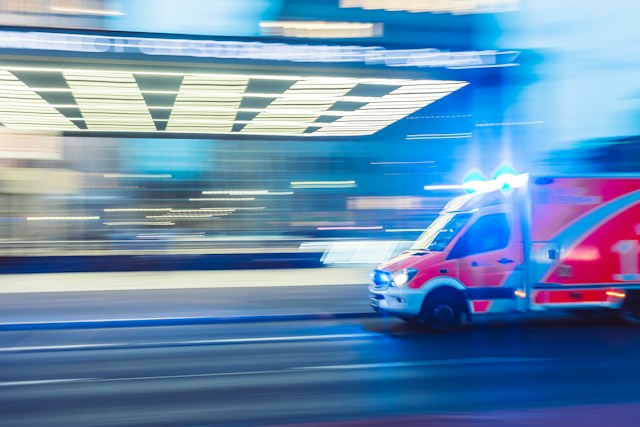Motorcycle accidents can be extremely distressing and may result in injuries. In some situations, it is crucial to act calmly while waiting for professional medical assistance. With Richmond being a hub for motorcycle enthusiasts, it’s crucial to acknowledge that accidents can be distressing for both riders and onlookers. Being at the scene of a motorcycle accident in Richmond may require individuals to act swiftly and calmly, serving as first responders while awaiting professional medical assistance. This article aims to provide a guide on the steps individuals should take as first responders in a motorcycle accident before help arrives. By effectively understanding and implementing these measures, you can minimize harm and ensure the best possible outcome for the injured person.
For those in Richmond who find themselves involved in or witnessing a motorcycle accident and later need guidance or support, seeking a free consultation from legal professionals can be invaluable. Understanding your rights and potential legal recourse after a motorcycle accident is crucial, and a free consultation can provide the necessary insights.
Table of Contents
1. Evaluate the Situation
Before taking any action, it’s important to assess the overall situation. Prioritize your safety by observing hazards such as ongoing traffic, broken glass, or leaking fuel that could pose additional risks. Identify any threats and ensure you are adequately protected before proceeding.
2. Contact Emergency Services
Once you have gained an understanding of the situation and confirmed that it is safe to do so, immediately call emergency services. Provide them with details about the location of the accident as well as specific information regarding injuries sustained by those involved.
3. Prioritize Unconscious or Unresponsive Individuals
If there are people who are unconscious or unresponsive at the scene, it is crucial to give them attention. Start by checking their airway by tilting their head and lifting their chin, ensuring they can breathe properly. If necessary, loosen any clothing around their neck and chest for oxygen supply.
4. Control Bleeding
Motorcycle accidents often result in bleeding wounds due to impact on objects or vehicles. In cases of bleeding, it is vital to apply pressure using a clean cloth or clothing item right away. Maintain pressure directly over the wound until medical professionals arrive at the scene.
5. Stabilize Suspected Spinal Injuries
When fractures or spinal injuries are suspected, immobilizing the area becomes crucial to prevent harm. If you have assistance, work together to support the person’s head and neck in alignment with their body while providing stability for any unstable limbs until professional medical help arrives.
6. Offer Comfort and Reassurance
Motorcycle accident victims may experience fear, shock, and significant pain. It is essential to provide them comfort and reassurance during this distressing period. Remaining calm can help alleviate some of their anxiety. Offer words of encouragement and support while waiting for emergency services to arrive.
7. Only Move the Injured Person if it is Absolutely Necessary
As a responder, avoid moving someone who is injured unless their safety is in danger, such as from a fire or imminent threat. Unnecessary movement could potentially worsen their injuries and lead to complications.
8. Gather Information
To assist emergency responders, gather any information that could be helpful for assessing and treating the injured person(s). Collect details like the victim’s name(s), contact numbers of kin if available, and any allergies or pre-existing medical conditions disclosed by the injured individuals.
9. Document the Scene
If it is safe to do before help arrives, consider taking photos or videos of aspects of the scene (to aid investigators) as well as any visible injuries sustained by those involved (to assist healthcare professionals). This documentation can be invaluable during investigations and when filing insurance claims.
10. Collaborate with Emergency Responders
Once professional help arrives at the scene, your role shifts from being a caregiver to supporting personnel. Foster collaboration and work together with them to provide assistance and necessary information. Make sure to share all information you have gathered about the patients and provide any additional assistance that these professionals in charge may need.
Conclusion
When you find yourself as a responder to a motorcycle accident, it is crucial to follow these steps. By doing so, you will greatly contribute to providing care while waiting for professional help to arrive at the scene. Acting quickly, attentively, and calmly can make a difference in promoting the well-being of the injured person(s) and potentially reducing long-term consequences. Let’s all be prepared to lend a helping hand in times of need, creating an environment for every motorcycle enthusiast on the road.
Featured Photo by camilo jimenez on Unsplash




